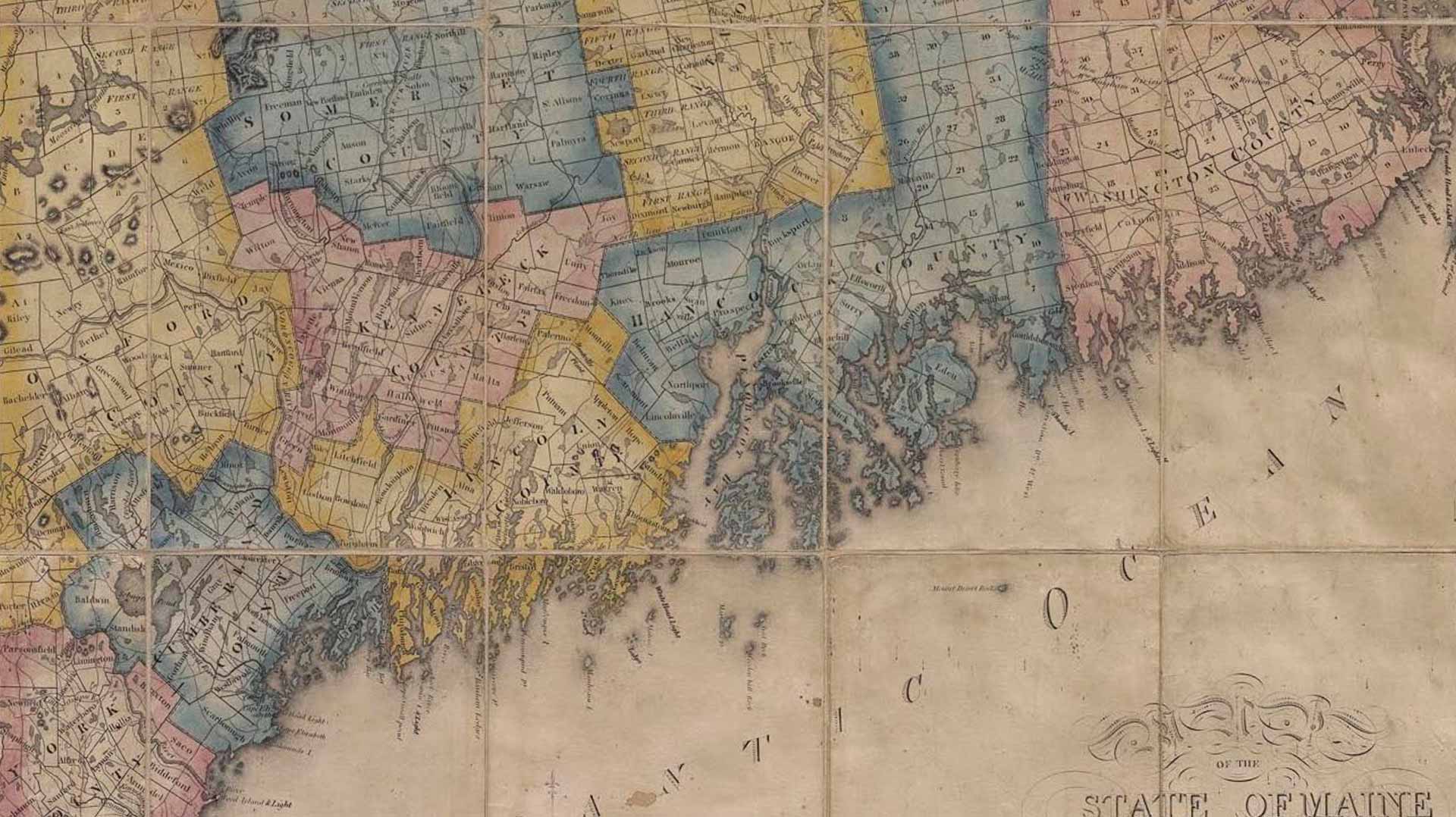Coordinator, Maine Prisoner Advocacy Coalition
she/her
Wendy Allen is a 45 year woman who battled Substance Use Disorder and is in long term recovery. She is formerly incarcerated, and is living proof that recovery is possible. She currently holds many hats in the community. She is a grant writer and coordinator with Maine Prisoner Advocacy Coalition, the Young Adult Diversion Program lead for Restorative Justice Institute of Maine, a Recovery and Re-entry Coach, as well as a Peer Support Specialist for Penobscot Family Recovery Court with Maine Prisoner Re-entry Network. She recovers loud for those suffering in silence. She is a wife, mother and grandmother that enjoys music, crafting and spending time with her family.
Wendy is also a Facilitator for Maine Humanities Discussion Projects and winner of the 2022 Maine Humanities Facilitator Prize.
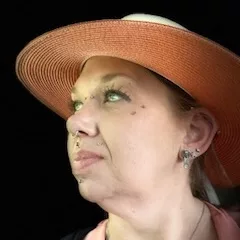
Talks
Dare to Dream
This presentation is focused on Substance Use Disorder and Allen’s heart wrenching journey battling this disease, what led up to it, and how she has sustained a life in recovery. This is an eye opening presentation around the affects of internal and external stigma, how SUD affects one’s thinking, actions and behaviors, and the struggles to survive while living a life in darkness.
This is a “through the lens” presentation that educates communities on the often unspoken truth of a person suffering with SUD, how families and communities are affected, what helps and hurts the one suffering, and how they think and feel before, during and after active use. It touches on how her incarceration and substance use affected her children, and sheds light on how easily this disease can destroy a life and the beauty of recovery.
Substance Use Disorder is taking the lives of our people every day. This strong presentation proves that recovery is possible, if they only dared to dream.
Poet/Author
she/her
Samara Cole Doyon is a second generation Haitian American and multi-generational Mainer–this state claiming half the roots of her family tree. She is a wife, mother, and teacher holding a BA in English from the University of Southern Maine and currently completing a Masters in Teaching and Learning.
She has been a regular contributor at Black Girl in Maine Media, has been featured in the Deep Water poetry column of the Portland Press Herald, and has authored children’s books Magnificent Homespun Brown (Tilbury House Publishers, January, 2020), Magic Like That (Lee & Low Books, June 2021), and her most recent, Next Level: A Hymn in Gratitude for Neurodiversity (Tilbury House Publishers, 2024)
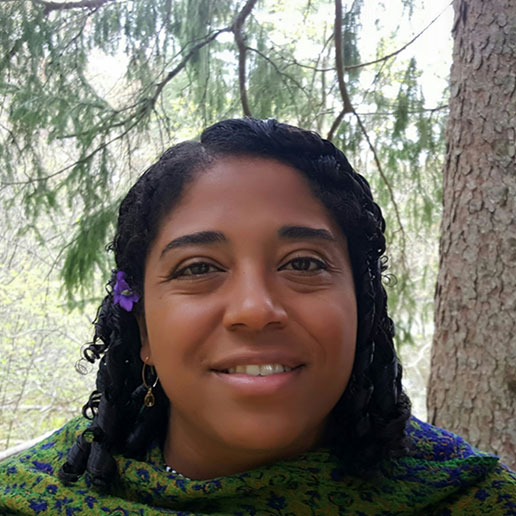
Talks
Embracing Our Magnificence as an Act of Resistance
A discussion based on my debut children’s book, Magnificent Homespun Brown, and how systematically marginalized people survive and transcend oppression through unapologetic self-love and jubilation.
Founder and Director, Franco-American Women’s Institute
she/her/elle
Rhea Côté Robbins was brought up bilingually in a Franco-American neighborhood in Waterville known as the South End. Côté Robbins is the author of creative nonfiction, memoirs titled, ‘down the Plains,’ and Wednesday’s Child, winner of the Maine Writers and Publishers Alliance Chapbook Award.
She is editor of Canuck and Other Stories, an anthology of translations of early 20th century Franco-American women writers who wrote about their immigration experience. Her poems and essays have appeared in many publications. She is the founder and director of the Franco-American Women’s Institute, FAWI.
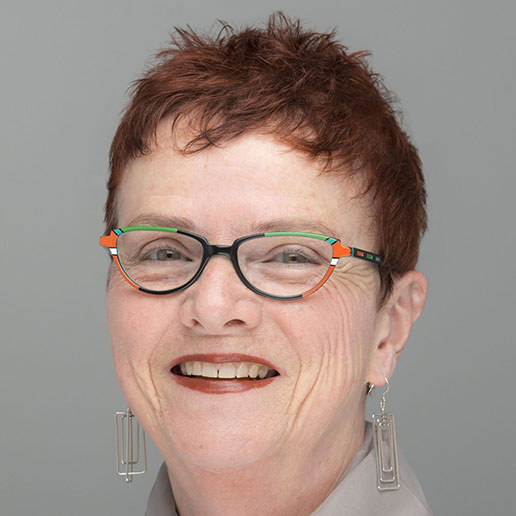
Talks
Who Gets To Tell Story?
Telling or hearing story while conscious of the human ecology—listening to story justly with social consciousness of equality. I would like to define what qualifies as “story.” I believe essentially that every person, artifact, ritual, etc. is story. Everything we know comes to us via story; we are surrounded by story. Story is the microcosm of the macrocosm. Who, in the cultural milieu, gets to tell story?
Where Are the Franco-American Women in Your Community?
Using a Franco-American woman’s search and research as a model to address the issue of what, if any Franco-American woman wanted to know about Franco-American women and their history, where would they begin if they were not told or not allowed to know and value the contributions of the Franco-American women’s history? Who are the Franco-American women in the state of Maine in regard to the history of ethnic populations? What makes the Franco-American culture worth the focus in regard to ethnic diversity? The answers to these questions remain unknown in the history of Maine. Deeper review of the lives of the Franco-Americans, present and past, reflects this hidden history.
Franco-American Women, Suffrage and Political Activity
What was Camille Lessard Bissonnette doing to promote women’s suffrage in 1910-1911, and what barriers did she face? What was happening across the border in the QC/Canadian women’s suffrage movement, which started in 1912? And who were the Franco-American women of Maine who served in the Maine State Legislature starting in 1935? The lives of these women illustrate the history of women’s suffrage here, connects the present, and helps us understand how we got here.
President, Board of Directors, Abyssinian Meeting House
she/her
Pamela Cummings is President of the Board of Directors and Director of Education Programs for The Abyssinian Meeting House. She is also the writer of two books and the founder of A Walk Back in Time, a theatrical walk retracing the footsteps of enslaved people in Portland, Maine. She is proud mother of Lindsey Alston DAndrea and Douglas Alston.
Photo: PORTLAND, ME – Pam Cummings, the head of the Committee to Restore the Abyssinian, in the upstairs of the meeting house which is currently being restored. The historical place of worship built by African Americans in the 19th century fell into disarray and a committee to restore the building has been working toward the goal for 20 years. (Staff photo by Brianna Soukup/Staff Photographer)
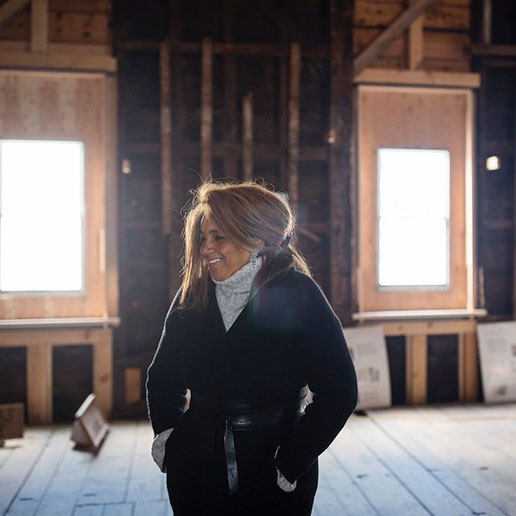
Talks
The Underground Railroad: Retracing the Tracks
An illustrious walk back in time to discuss the history of the Underground Railroad and its relevance and significance to Maine’s total and accurate history. Pamela explores the places that are hidden all around us in plain sight, each with its own story begging to be told and lessons waiting to be shared.
What’s in Your Hand?
Use readily available resources to create your underground railroad–your escape from slavery to freedom.
President, Khmer Maine
he/him
Marpheen Chann is an author, thinker, advocate, and speaker on social justice, equity, and inclusion.
As a gay, first-generation Asian American born in California to a Cambodian refugee family and later adopted by an evangelical, white working-class family in Maine, Marpheen uses a mix of humor and storytelling to help people view topics such as diveristy, equity, inclusion, belonging, and justice through an intersectional and empathetic lens.
Marpheen Chann lives in Portland, Maine. He works in the nonprofit and advocacy sector and holds a bachelor’s degree in Political Science from the University of Southern Maine and a law degree from the University of Maine School of Law.
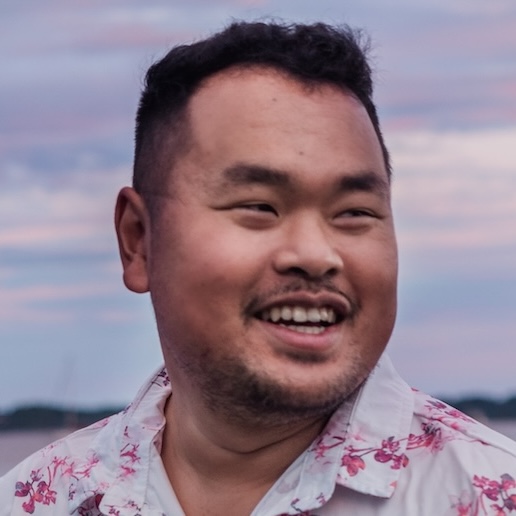
Talks
Welcome Home: My Journey Through Foster Care, Coming Out, and Reuniting with Family
Life is complicated and full of twists and turns. In “Welcome Home,” Marpheen shares his insights, lessons learned, and maybe a few laughs as he shares his story as a second-generation Cambodian American who went through foster care and adoption, struggled with fitting in and adapting to a white-majority community, and coming out as gay to his devoutly religious family.
The Empathy Effect: How to Have Conversations That Lead to Change
In a time of great division and anger nationwide, how do we go about changing hearts and minds when it comes to issues like diversity, inclusion, and equity? In a 40 minute presentation followed by Q+A discussion, Maine politician, author and civil rights advocate Marpheen Chann shares his personal story of growing up in Maine, coming out to his religious adoptive family, and the lessons he’s learned about how change can happen.
Moon in Full: A Modern-Day Coming-of-Age Book Talk
Moon in Full, a contemporary coming-of-age story, shines light on one young man’s search for truth and compassion in a complicated era as it unwinds the deep-seated challenges we all face finding our authentic voice and true identities. Author Marpheen Chann’s heart-warming journey weaves through housing projects and foster homes; into houses of worship and across college campuses; and playing out in working-class Maine where he struggles to find his place. Adopted into in a majority white community, Chann must reconcile his fears and secret longings as a young gay man with the devoutly religious beliefs of his new family. Chann, a second-generation Asian American, recounts what he has learned, what he has lost, and what he has found during his evolution from a hungry refugee’s son to religious youth to advocate for acceptance and equality.
Staff Writer, Sun Journal
Lindsay Tice is an award-winning former journalist with 20 years experience. She worked for weekly newspapers, the Portland Press Herald and the Sun Journal in Lewiston, where she covered health care and breaking news and was one of the principal reporters for investigative pieces, long-form features, and Sunday packages.
Tice was named Maine Journalist of the Year for 2012-13 and at one point had won more Maine Press Association awards than any other journalist in the association’s remembered history. She is a firm believer that good journalism is society’s heart and conscience.
She currently works for the University of Southern Maine.
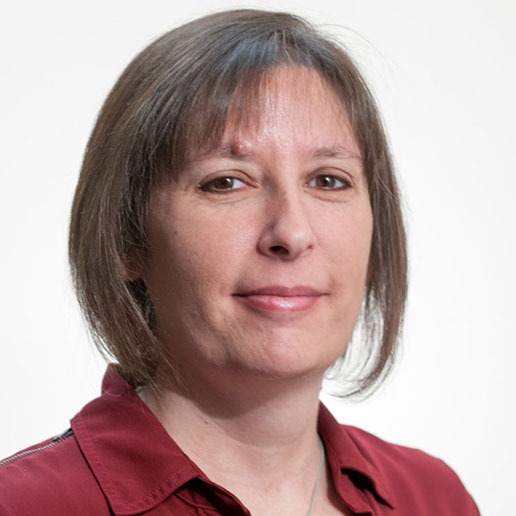
Talks
Why Journalism Matters Today (and Everyday)
Community Journalism
How to Tell Your Story
Ethics of Reporting
Maine State Archivist
she/her
Kate McBrien currently serves as Maine State Archivist, overseeing Maine State Government’s archives and records management programs. As curator of the award-winning exhibition “Malaga Island, Fragmented Lives,” McBrien is also an historian for the Malaga Island community. She previously held positions as Chief Curator and Director of Public Engagement at the Maine Historical Society and as the Curator of Historic Collections for the Maine State Museum.
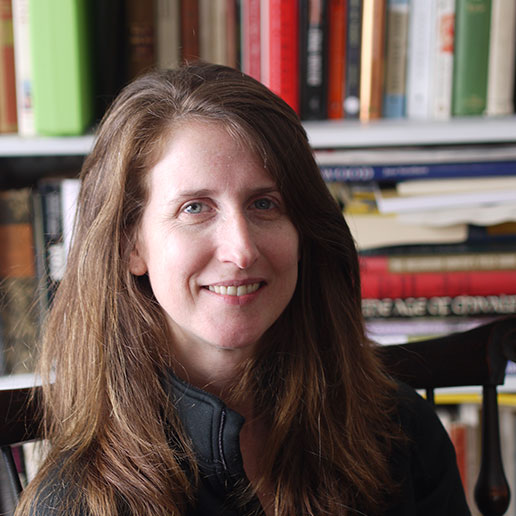
Talks
Malaga Island
This presentation and discussion explores the true history of the community who lived on Malaga Island, off the coast of Phippsburg, Maine, in the late 1800s. The program examines the individuals who were part of this community and the state’s actions to evict them from their homes through the complex history of racism and eugenics in Maine.
Associate Professor of Africana Studies
she/her
Judith Casselberry is Associate Professor of Africana Studies at Bowdoin College. Her teaching and research focuses on Black American religious and cultural studies, social movements, and Black intellectual thought with particular attention to gender and liberation.
She is author of The Labor of Faith: Gender and Power in Black Apostolic Pentecostalism (Duke University Press, 2017) and co-editor of Spirit on the Move: Black Women and Pentecostalism in Africa and the Diaspora (Religious Cultures of African and African Diaspora People series with Duke University Press, 2019.
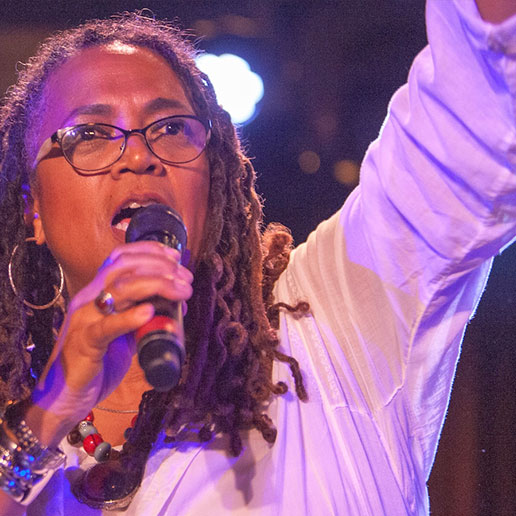
Talks
Afrofuturism in 19th century Black Spirituals
What can 19th century Black spirituals teach us about Afrofuturism? What if we fully embraced the insistence of the spirituals—insisting on humanity, insisting on a divine ethical and moral vision?
Nineteenth century Black spirituals laid the foundations for Afrofuturism as Black people brought God and the battles and heroes of the Old Testament into their history while projecting liberation in the now and future. Through the spirituals Black people insisted on the value of their ways of knowing and ways of expressing life, death, sorrow, and joy.
This talk is made possible in part by the National Endowment for the Humanities (NEH). Any views, findings, conclusions, or recommendations expressed in this presentation do not necessarily represent those of the NEH.
Black Women’s Freedom Practices: 17th to 21st Century
This talk centers four Black women of consequence who affected the American political landscape between the 17th and 21th centuries—Elizabeth Key, Ida B. Wells-Barnett, Fannie Lou Hamer, and Stacy Abrams.
Their experiences highlight how power dynamics of race, gender, sexuality, status, and religion converge in different moments and are shaped by social, political, and historical contexts. At the same time, each woman shows how Black women’s activism has had a profound impact on America’s self-understanding—in social, legal, and political realms.
This talk is made possible in part by the National Endowment for the Humanities (NEH). Any views, findings, conclusions, or recommendations expressed in this presentation do not necessarily represent those of the NEH.
Intentional Community Building: Blackness in Lesbian Musical Culture
Based on reflections from a cultural worker/performer at the Michigan Womyn’s Music Festival, this talk address the commitment to building an intentional community rooted in a lesbian feminist musical and artistic ethos.
This talk provides a glimpse into spaces where lesbians of color negotiate questions about autonomy, coalition work, and intentional community building which inform our notions of civil society, citizenship, and social justice. This talk explores these themes by looking specifically at the evolution of the festival’s theme song, “Amazon”
This talk is made possible in part by the National Endowment for the Humanities (NEH). Any views, findings, conclusions, or recommendations expressed in this presentation do not necessarily represent those of the NEH.
Storyteller and oral historian
she/her
Before returning to her family home in western Maine as a freelance storyteller and oral historian, Jo Radner spent 31 years as a professor at American University in Washington, DC. There she taught literature, folklore, women’s studies, American studies, Celtic studies, and storytelling.
In 2023 she published a book, Wit and Wisdom: The Forgotten Literary Life of New England Villages, about a 19th-century tradition of creating and performing handwritten literary newsletters. Radner received her PhD from Harvard University and is a past president of the American Folklore Society and the National Storytelling Network.
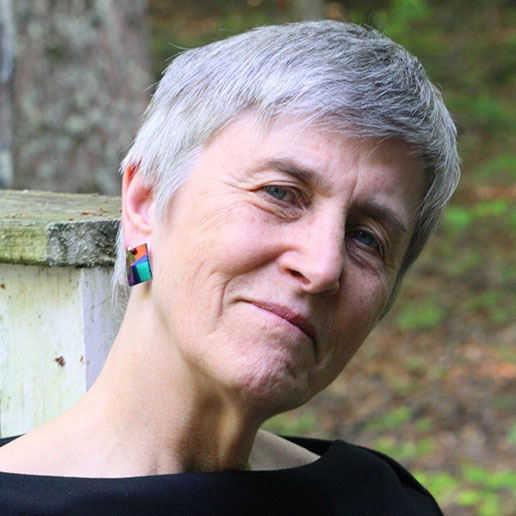
Talks
Burnt into Memory: How Brownfield Faced the Fire
Drawing on interviews with townspeople, letters, photographs, and newspaper reports, Jo Radner tells the history of the furious 1947 wildfire that in a few hours destroyed almost all of the little town of Brownfield in western Maine.
Neighbors fought and fled the fire, saving what they could and supporting one another, then returned to the devastated town to rebuild their community. In the Brownfield citizens’ own words Radner tells an epic story of terror, courage, generosity, and hope.
Family Stories: How and Why to Remember and Tell Them
Telling personal and family stories is fun – and much more. Storytelling connects strangers, strengthens links between generations, and gives children the self-knowledge to carry them through hard times. Knowledge of family history has even been linked to better teen behavior and mental health.
In this active and interactive program, storyteller Jo Radner shares foolproof ways to mine memories and interview relatives for meaningful stories. Participants will practice finding, developing, and telling their own tales.
Wit and Wisdom: Homegrown Humor in 19th Century New England
Whatever did New Englanders do on long winter evenings before cable, satellite and the internet? In the decades before and after the Civil War, our rural ancestors used to create neighborhood events to improve their minds. Community members would compose and read aloud homegrown, handwritten literary “newspapers” full of keen verbal wit.
Sometimes serious, sometimes sentimental but mostly very funny, these “newspapers” were common in small villages across Maine, New Hampshire and Vermont and revealed the hopes, fears, humor, and surprisingly daring behavior of our forebears. Jo Radner shares discoveries about hundreds of these “newspapers” and when possible, provides examples from villages in your region.

